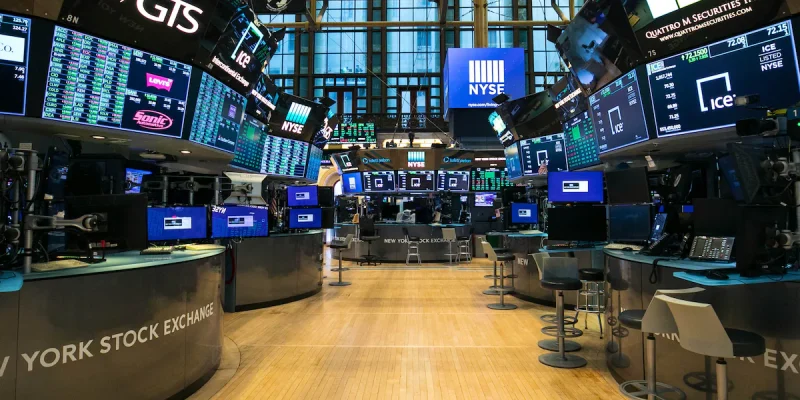What Does It Mean When an Exchange than Busts Your Trade? Understanding Trade Cancellations

Trading in financial markets is often fast-paced, requiring precision and trust in the platforms facilitating transactions. However, situations can arise where an exchange busts your trade, meaning the transaction is canceled or invalidated after execution. For traders, this can lead to confusion, frustration, and potential financial losses.
In this article, we’ll break down what it means when an exchange than busts your trade, the common reasons for this occurrence, and how traders can navigate and mitigate such scenarios effectively.
What Does “Bust Your Trade” Mean?
When an exchange busts a trade, it essentially cancels or reverses a transaction that had been executed. This action is typically taken by the exchange under certain conditions where the trade is deemed invalid or erroneous.
Key Features of a Trade Bust
- Trade Nullification: The transaction is erased as though it never occurred.
- Reversal of Settlement: Any funds or assets exchanged are returned to their original accounts.
- Exchange Discretion: The exchange has the authority to bust trades based on specific rules and guidelines.
Common Reasons Why an Exchange Busts a Trade
Fat Finger Errors
A fat finger error occurs when a trader mistakenly enters the wrong price or quantity for an order, leading to an unintended transaction.
Example:
- A trader accidentally enters an order for 1,000 shares instead of 100 or places a buy order at $1,000 instead of $100.
- If this disrupts the market significantly, the exchange may bust the trade.
Erroneous Trades
Erroneous trades are those that deviate significantly from the current market price due to technical glitches, miscommunication, or input errors.
Example:
- A trade executed at $500 for a stock trading consistently at $50 is flagged as erroneous.
Violations of Exchange Rules
Exchanges have strict rules governing trading activity. If a trade violates these rules, such as breaching circuit breakers or executing during restricted periods, it may be canceled.
System or Algorithm Failures
Technical malfunctions in trading systems, such as algorithmic trading errors or software bugs, can result in trades being busted.
Example:
- A trading bot executes multiple duplicate trades due to a coding error, prompting the exchange to intervene.
Market Manipulation
If a trade is part of suspicious activity or market manipulation, such as spoofing or layering, the exchange may bust it to maintain market integrity.
How Trade Busts Impact Traders
Financial Losses
- Traders who benefit from a favorable price may lose out on profits if the trade is canceled.
Missed Opportunities
- The time taken to resolve a busted trade could lead to missed trading opportunities in a volatile market.
Reputational Risks
- Repeated errors leading to trade busts could harm a trader’s credibility, especially for institutional players.
Market Confidence
- Frequent trade busts may undermine trust in the exchange or trading platform.
Can You Challenge a Busted Trade?
Most exchanges allow traders to appeal trade busts within a specific timeframe. However, the outcome depends on the circumstances and the exchange’s policies.
Steps to Challenge a Trade Bust
- Contact the Exchange Immediately: Submit an appeal through the official channels.
- Provide Evidence: Share trade details, screenshots, or logs to support your case.
- Review Exchange Policies: Ensure your trade complies with their rules and regulations.
Tips to Avoid a Trade Bust
Double-Check Orders
- Before placing an order, verify the price, quantity, and order type to avoid input errors.
Use Price Limits
- Set limit orders instead of market orders to control the price at which trades are executed.
Monitor Market Conditions
- Be aware of volatile conditions that may lead to significant price discrepancies.
Invest in Reliable Tools
- Use trading platforms with advanced error-checking features and safeguards.
Stay Updated on Exchange Rules
- Familiarize yourself with the exchange’s policies on trade busts and other trading-related actions.
Conclusion
When an exchange busts your trade, it can be a frustrating experience, especially if the trade was favorable. However, trade cancellations serve a critical role in maintaining market fairness and integrity. Understanding the reasons behind trade busts and taking proactive measures can help traders minimize risks and avoid disruptions.
Ready to trade smarter? Double-check your orders, stay informed on exchange policies, and invest in reliable trading tools to protect your transactions.
FAQs
1. Why would an exchange bust my trade?
An exchange may bust your trade due to errors, rule violations, market manipulation, or system failures.
2. Can I get reimbursed for losses caused by a trade bust?
Generally, exchanges do not offer reimbursement for losses, as traders are expected to review orders before execution.
3. How long does it take to resolve a busted trade?
Resolution times vary by exchange but can range from a few hours to several days.
4. Are trade busts common?
Trade busts are relatively rare but can occur during periods of high volatility or due to technical issues.
5. What happens to my funds if a trade is busted?
Funds or assets involved in the trade are returned to their original accounts.
Also read: What Are Truett Cathys 5 Principles? A Legacy of Leadership and Values











